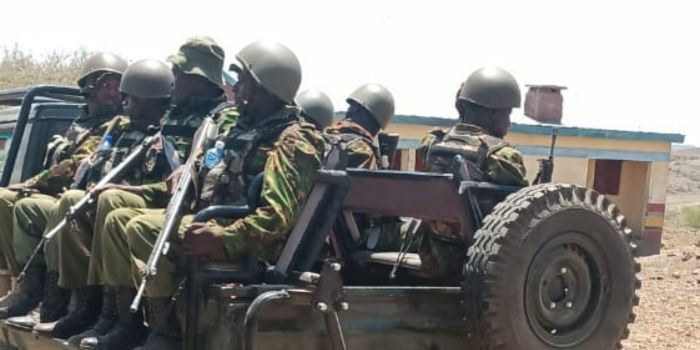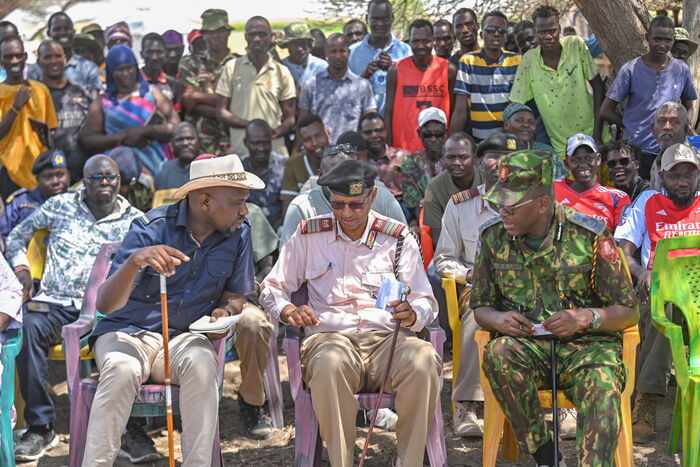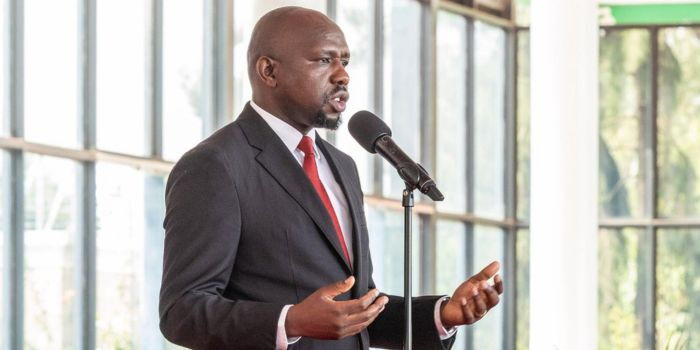In a landmark development signaling a shift toward peace and recovery in Kenya’s northwestern frontier, the government has announced it is reviewing the 12-hour curfew that has gripped Kainuk and its surrounding areas in Turkana for the past three years.
During a Jukwaa la Usalama (Public Security Dialogue) meeting held in Lodwar on Wednesday, July 16, Interior Cabinet Secretary Kipchumba Murkomen confirmed that the national government is considering adjusting the strict 6am to 6pm curfew that has long disrupted lives and economic activities in Turkana South and East.
“I will be reviewing the curfew timing based on the security briefing to give locals more time as we monitor the situation. In three months, if the conditions become good, we might consider lifting the orders,” CS Murkomen said.
This is the first time in three years that the government has taken steps toward relaxing the restrictive order that was put in place in response to rampant insecurity, especially violent clashes involving bandits near Kakuma Refugee Camp and Kalobeyei settlement.
If the security situation continues to improve, Murkomen revealed that the curfew could soon be adjusted to 10pm to 4am, offering the local population a major boost in mobility, commercial activity, and access to essential services.
While peace is returning to Turkana South and East, trouble still looms in Todonyang, Turkana North. CS Murkomen disclosed that the government is establishing a multi-agency response team to address recent violence in the region after a deadly ambush on fishermen on Lake Turkana by suspected Ethiopian militia.
The tragic attack, believed to have occurred in February, left 20 Kenyan fishermen dead and several others critically injured. The gunmen are said to have opened fire indiscriminately as the fishermen carried out their daily activities along the lake’s contested border.
Murkomen noted the difficulty in confirming the exact number of fatalities or missing persons due to the complex nature of the cross-border violence and delays in official reporting.
“The government cannot still establish the exact figure of fatalities or missing persons unless reports are officially made to authorities. It was a complex and dynamic tragedy in the lake,” he said.
The possible review, and eventual lifting, of the curfew could mark the beginning of a new chapter for communities long plagued by instability, underdevelopment, and economic isolation. Local leaders and residents have continuously called for reforms, citing the economic stranglehold and transportation hurdles caused by the prolonged restrictions.
This latest move by the Interior Ministry reflects not only the government’s recognition of progress in certain pockets of the region but also a cautious optimism that Turkana can reclaim peace, dignity, and economic momentum.






